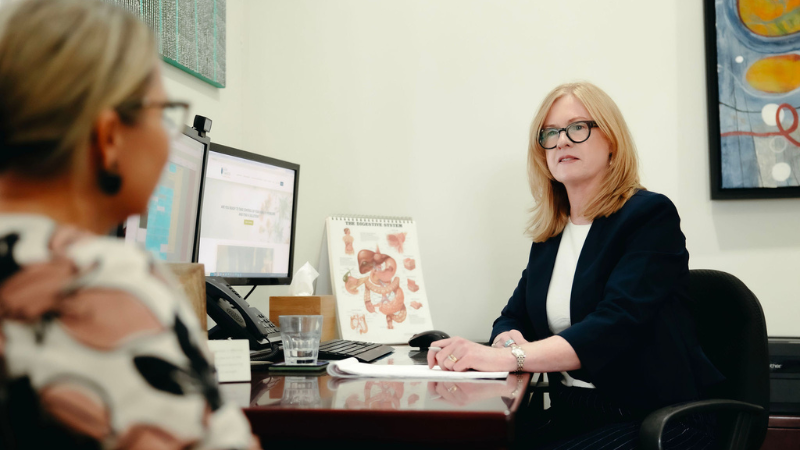Burnout - Is it a fad or is it real?

In 2018, I became personally and professionally concerned about the impact chronic stress was having not only on mental health but also the impact on fatigue, insomnia, poor immunity, weight gain and increase, in complex and chronic health issues.
I have been working in primary healthcare as a clinical Naturopath for over two decades and have seen my fair share of chronically unwell people. However, in 2018 I was finding a higher percentage of people walking through my door were coming with a more complex picture than ever before. The most common symptom was fatigue. This fatigue was different, it was unrelenting, and no amount of rest, good eating, support, exercise, or time would relieve it. It wasn’t related to post viral syndrome, and it was also coupled with an unusual element of behavioural issues such as lack of motivation, lack of fulfilment at work or in life and this was often in conjunction with digestive issues, systemic pain and insomnia.
My role as a Naturopath is to support people with evidence based holistic care using wholefood nutrition, lifestyle medicine, food as medicine and the use of nutritional and phytomedicine supplementations. My training is to look at the individual in front of me, identify any common thread of an underlying dysfunction and provide treatment through a holistic lens.
In 2018, the common thread to the hundreds of people I was treating that year and subsequent years was the impact chronic stress was having on a person, a family and community. I live and work in a regional community, we were several years into a drought and the despair in farming communities and the surrounding towns and cities was very stark. Droughts and hardship are part of life in regional and remote communities, and the flexibility and resilience to cope during these times is expected (unfortunately). On a personal level, I was also experiencing the negative effects of stress as I was spreading myself thin between work and family life. I was living the ‘Sandwich Generation’ experience (a topic for a future blog!) for several years.
The researcher and clinician in me, went down a rabbit hole to investigate the impact chronic stress has on human health, the risk factors and what are the best treatments, solutions, and recovery for people. The world of research is an interesting cosmos when looking at a complex health issue. There is no ordered system or unilateral solution to this problem. In the end I took a holistic approach and investigated through the lens of psychology, medicine, integrative medicine, naturopathy, holistic health, ancestral health and behavioural health.
Is Burnout a Fad or is it real? Well, let’s fast forward to the 2019-2021 Covid-19 pandemic. This experience offered an opportunity to the world to showcase what chronic stressors can do to a person, family, and community. My 2018-2019 clinical and personal experience was a drop in the ocean compared to the impending pandemic experience. However, I feel the evidence and solutions are fundamentally the same.
Globally, burnout levels have risen in part due to the aftermath COVID-19, and in part due to the ‘eat, sleep, work, repeat’ daily grind. In Australia, 62% of workers are experiencing and burnout 1 whilst across the Tasman, burnout rates for Kiwi workers are at 70%, compared to a global average of 48%.2 Clearly burnout is a real and significant issue in our society.
How do you know if you are experiencing burnout?
The symptoms of burnout include:
- Exhaustion
- Anxiety
- Indifference
- Depression
- Irritability and anger
- Sleep disturbance
- Lack of motivation or passion
- Cognitive problems
- Impaired performance
- Becoming asocial
- Emotional dysregulation
Burnout is classified as a three-dimensional condition resulting from chronic work-related stress, encompassing exhaustion or energy depletion, depersonalisation or cynicism towards one’s responsibilities, and a sense of ineffectual accomplishment.3 In addition to these symptoms, the negative effects of burnout can have significant impacts on relationships, work/home life and increase in chronic disease.
During my research the pre Covid-19 pandemic, I found the research and book by Gorden Parker, Gabrielle Tavella and Kerrie Eyers, Burnout – A guide to identifying burnout and pathways to recovery clinically relatable, thorough, and empowering. Their research included typical people in today’s western society, experiencing the negative effects of chronic stress. Another wonderful resource was the work from Emily and Amelia Nagosky, Burnout – the secret to unlocking the stress cycle. These two sisters discuss the different experience of burnout between men and women. Defining burnout and assessing if you are experiencing this chronic debilitating syndrome, I find the Sydney Burnout Measure an effective tool.
What I would like to leave you with today, is to understand what puts you at risk of Burnout and to hopefully empower you to take some steps to prevent or seek professional help with these known risk factors. Prevention is always the best cure and is one of the six Naturopathic Principles.
From my research, there are five areas that puts you at risk of burnout. Some of these I hope you can embrace and look for better solutions so you too can experience better health and enjoyment in life.
Risk Factors
The Worker Imbalance
The balance of paid & invisible work, knowing and understanding your WHY, social connection, do you view your job as a career or calling?
Toxic Workplace
There are 13 factors in the workplace that can contribute to burnout. Some of these include the environment, the workload, hours, time pressure, conflict, lack of control and organisational changes.
Occupational Risk
Occupations such as health workers, educators, lawyers, law reform, senior management, full time carers, welfare workers.
What You Bring
Factors about you such as being female, universal carer / human giver syndrome / sandwich generation, age (born 1965-1979), marital status (single, divorce, widowed), education - higher educated, adverse childhood experiences (ACE), patriarchy/bikini industry complex.
Personality Behaviours
Traits such as toxic perfectionism, introverted, sensitive to judgement, neurotic behaviour, type A personality, external control, giver syndrome imbalance.
During 2019 I developed a program which was designed to address the symptoms of burnout through lifestyle medicine, self-empowerment, and holistic care. To find out more about this program and join the waitlist for our next round click the button below!
References
- Tamaray P. Australian employees suffer mass burnout. Human Resources Director. Published October 4, 2022. https://www.hcamag.com/au/specialisation/mental-health/australian-employees-suffer-mass-burnout/422659#:~:text=The%20latest%20Microsoft%20Work%20Trend,average%20of%2048%25%20of%20employees.
- Bergh R van den. NZ workers are more likely to suffer burnout than in any other country – report finds. Stuff. Published May 24, 2023. https://www.stuff.co.nz/business/132127430/nz-workers-are-more-likely-to-suffer-burnout-than-in-any-other-country–report-finds#:~:text=New%20Zealand%20workers%20are%20more,59%25%2C%20the%20report%20said.
- QD85 Burnout. ICD-11 for Mortality and Morbidity Statistics (Version : 05/2021) 2021; Available from: https://icd.who.int/browse11/l-m/en#/http://id.who.int/icd/entity/129180281.
- Parker G, Tavella G, Eyers K. Burnout – A Guide to Identifying Burnout & Pathways to Recovery. Allen & Unwin; 2021. doi:10.4324/9781003333722-1
- Bayes A, Tavella G, Parker G. The biology of burnout: causes and consequences. World J Biological Psychiatry. 2021;22(9):686-698. doi:10.1080/15622975.2021.1907713
5. Saad L, Agrawal S, Wigert B. Gender gap in worker burnout widened amid the pandemic. Gallup. Published December 27, 2021. https://www.gallup.com/workplace/358349/gender-gap-worker-burnout-widened-amid-pandemic.aspx


0 comments
Leave a comment
Please log in or register to post a comment